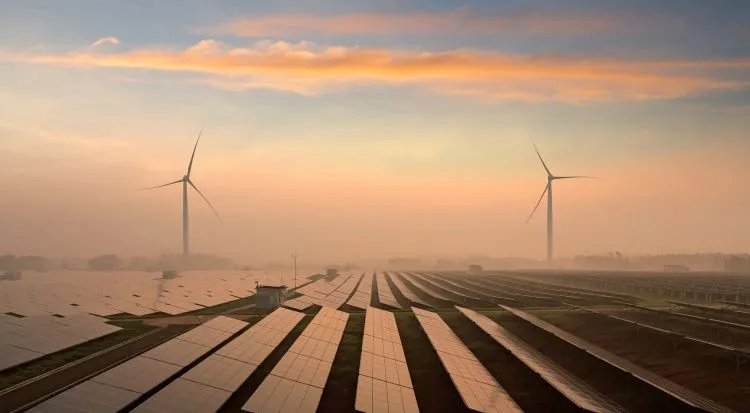Renewable generation to remain below 10% in Africa by 2030
- The amount of non-hydro renewables such as solar in Africa is most likely to continue to be below 10% in 2030, although there are substantial regional differences.

This is according to a brand-new study from the University of Oxford, which utilized a state-of-the art machine-learning strategy to evaluate over 2,500 currently-planned nuclear power plant as well as their chances of being successfully appointed around the continent. It discovered that while complete power generation is most likely to double over the following decade, nonrenewable fuel sources will certainly continue to dominate.
By 2030, the research study-- which was released in Nature Energy-- suggests two thirds of power produced throughout Africa will originate from fossil fuels. An extra 18% will come from hydropower, which positions its own challenges, as the variety of dry spells remains to increase driven by environment change.
As the continent's electrical power demand remains to enhance in addition to industrialisation and the enhanced well-being of its individuals, there is a chance to power financial advancement with renewables according to Galina Alova, research lead author and scientist at the Oxford Smith School of Enterprise as well as the Environment.
" There is a prominent story in the power planning neighborhood that the continent will certainly be able to benefit from its vast renewable energy sources and swiftly reducing tidy technology prices to leapfrog to renewables by 2030-- however our evaluation reveals that general it is not presently placed to do so."
To move Africa towards renewables would certainly require a substantial shock to the present system the research study suggested, consisting of massive termination of nonrenewable fuel sources plants presently being planned.
It also determines ways in which projects can be designed to improve their opportunities of success, including concentrating on smaller sized dimension, suitable possession structures, and also the availability of advancement finance.
" The development area as well as African decision makers need to act promptly if the continent wants to avoid being secured into a carbon-intense power future," Philipp Trotter, research writer as well as researcher at the Smith School included.
" Immediate re-directions of growth finance from nonrenewable fuel sources to renewables are a crucial bar to boost experience with solar and wind energy projects across the continent in the short-term, producing essential learning curve impacts."
The University of Oxford's research study did highlight that there is sizeable disparity in between various countries and also regions when it pertains to turning out solar and other renewables. In particular it pointed to South Africa, which is anticipated to add almost 40% of Africa's complete anticipated brand-new solar capability by 2030.
In September, South Africa's solar sector welcomed government strategies to buy 6.8 GW of extra renewables from independent power producers since 2022, to deal with the nation's continuous power dilemma.
In other places Namibia is targeting 70% of its power from renewables by 2030, as specified in the country's National Energy Policy and in Intended Nationally Determined Contributions under Paris Climate Change Accord.
Calle Schlettwein, Namibia Minister of Water (former Minister of Finance and Minister of Industrialisation) welcomed the new research, saying it would certainly sustain "the improvement of techniques for raising generation ability from renewable resources in Africa as well as facilitate both effective as well as extra efficient public and also private sector financial investments in the renewable resource industry."
" The even more data-driven and also advanced analytics-based research is available for comprehending the risks related to power generation projects, the better. Some of the dangers that could be beneficial to explore in the future are the uncertainties in hydrological conditions as well as wind routines connected to climate modification, and financial downturns such as that caused by the COVID-19 pandemic."
The support of renewable resource in feedback to the COVID-19 pandemic has been recommended by a number of teams, consisting of the African Union Commission (AUC) and also international eco-friendly energy body IRENA. They called on worldwide renewable specialists to guide the roll-out of large volumes of solar and others in Africa in reaction to COVID-19, routing financing into power as an essential source.
Also read
- SolarBank Races to Meet US Tax Credit Deadline
- Montenegro Launches First Solar Auction, Targets 250 MW
- Green Genius Secures €36.7M for Major Lithuanian Solar Project
- Abraxas Secures Maldives Solar City Deal, Creating Floating Energy Hub
- Greenvolt Powers OMS with Rooftop Solar, Boosting Italian Steel Sustainability
